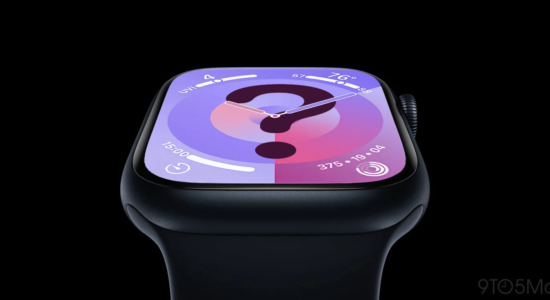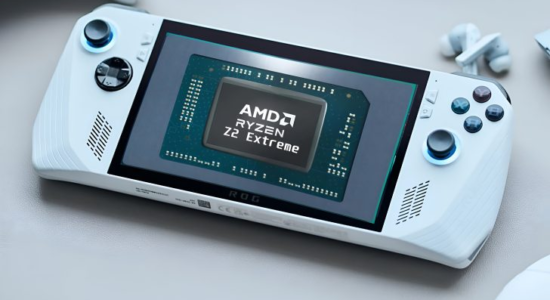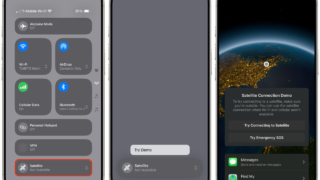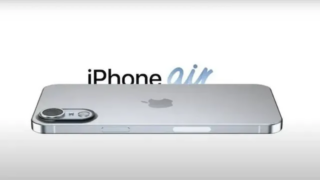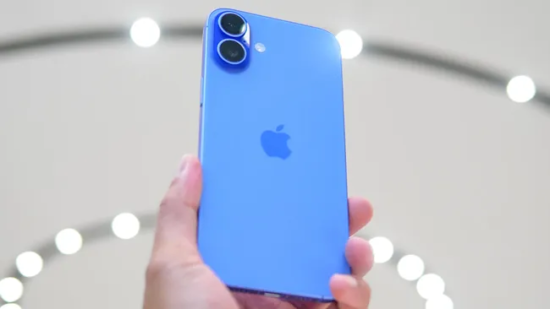
Apple’s iPhone launches are always highly anticipated, but this year’s iPhone 16 series has already made headlines for a specific reason: Apple has officially confirmed that all four models in the new lineup will feature 8GB of RAM. This is a significant upgrade over previous generations and marks the first time Apple has revealed the amount of RAM in its iPhones ahead of release.
Historically, Apple has kept quiet about specific technical details, such as battery capacity and RAM, choosing to focus its marketing on the overall user experience and the harmony between hardware and software. However, the 8GB RAM upgrade in the iPhone 16 series plays a crucial role in supporting Apple’s latest feature, Apple Intelligence, which relies on advanced AI and machine learning technologies. So, why is this RAM upgrade so important, and what does it mean for everyday users?
In this comprehensive guide, we’ll explore the reasons behind the upgrade, the technical and practical implications for iPhone users, and how this change positions the iPhone 16 as a significant step forward in Apple’s product evolution.
A Historic Shift: Apple Confirms RAM for the First Time
Apple’s Glowtime event, held earlier this year, followed the company’s tradition of showcasing the new iPhones’ design, camera upgrades, and improved performance through general terms. However, many tech enthusiasts were left wondering whether the event would finally break the mold and reveal detailed technical specifications—specifically, the amount of RAM. In the past, Apple has remained tight-lipped on such specs, preferring to let benchmarks and teardown reports from third parties reveal these details after launch.
This year, things have changed. After widespread rumors and early confirmations through the Apple Xcode 16 developer tool, an Apple executive has publicly acknowledged that all models of the iPhone 16 series will come equipped with 8GB of RAM. This change has sparked a flurry of interest in how the new RAM allocation will affect both performance and functionality. For Apple, this represents a notable departure from its traditional secrecy surrounding hardware specifics.
The Role of RAM in Apple Intelligence
So, why the sudden shift in Apple’s approach? The answer lies in the Apple Intelligence feature set. Apple Intelligence, Apple’s AI and machine learning platform, is poised to be a cornerstone of the iPhone 16’s new functionality. According to Apple, the 8GB of RAM is essential to enable Apple Intelligence to function smoothly across all models.
Johny Srouji, Apple’s senior vice president of hardware technologies, recently explained in an interview why the RAM upgrade was necessary: “Our goal is to build the best products, delivering the absolute best user experience. Apple Intelligence was a major feature that led us to believe that we need to get to 8GB.”
He continued, “When we look at what we’re building, whether it’s silicon, hardware, or software, we don’t want to be wasteful. We have lots of data that tells us what is going to enable a certain feature, and Apple Intelligence is one of those very, very important features that we want to enable.”
This sentiment underscores a key difference between Apple and its competitors. While some smartphone manufacturers might increase RAM simply to keep pace with industry trends, Apple’s decision is driven by a deep integration between hardware and software. Apple Intelligence is designed to leverage the iPhone’s unique hardware capabilities to offer new AI-driven features like real-time translations, photo analysis, and context-aware actions.
Apple Intelligence isn’t just a minor software tweak—it’s a suite of features that rely heavily on advanced machine learning models. For instance, it can process large amounts of data locally on the device, allowing for faster and more private AI-driven interactions. But to handle these demanding tasks efficiently, more RAM is required, and 8GB has been deemed the ideal amount to strike a balance between performance and efficiency.
How 8GB RAM Enhances Everyday iPhone Use
While the primary reason for the RAM increase is to support Apple Intelligence, the upgrade will also benefit users in other significant ways. More RAM means improved multitasking, faster app launches, and better overall system responsiveness.
For example, Safari will now be able to keep more tabs open in the background without needing to reload them when users switch back, a common frustration for iPhone users who frequently jump between apps. Additionally, apps that rely heavily on memory—such as photo and video editing tools like Adobe Lightroom or Final Cut Pro—will run more smoothly, even when handling large files.
One of the most important areas where users will see an improvement is in gaming. With mobile gaming becoming an increasingly important sector, Apple is keen to ensure that its devices are capable of handling demanding AAA titles. Srouji commented on this during his interview, explaining that 8GB of RAM will provide a significant boost to gaming performance: “Having said that, the 8GB is going to help immensely among other applications, including gaming, high-end gaming, AAA-titled games, and high-end gaming on-device.”
This increased memory capacity allows for smoother gameplay, with fewer frame drops and better overall performance in graphics-intensive games. As more high-end mobile games become available, this will be a key selling point for iPhone 16 users who want to experience console-quality gaming on their phones.
Apple’s Unique Hardware-Software Integration
One of Apple’s biggest strengths is its control over both hardware and software, allowing the company to optimize performance in ways that other manufacturers can’t match. Unlike many Android devices that pack in large amounts of RAM to compensate for less efficient software, Apple is able to fine-tune its operating system, iOS, to make the most out of its hardware.
Srouji addressed this in his remarks: “One big advantage of Apple making its own hardware and software in tandem is that the software team can optimize this newfound RAM so they don’t end up also wasting memory.”
This means that while 8GB of RAM might seem modest compared to some Android devices, Apple’s close integration of hardware and software ensures that every bit of RAM is used efficiently. This allows the iPhone 16 to deliver the kind of performance that other phones with higher RAM might struggle to achieve.
The A18 Chip and Memory Management
In addition to the RAM upgrade, the iPhone 16 series will be powered by Apple’s new A18 chip. This latest addition to Apple’s A-series chip lineup is built on a cutting-edge 3nm process, which promises significant performance gains while maintaining impressive energy efficiency.
Interestingly, despite the RAM increase, Apple has opted not to increase the core count in the A18 chip. This decision contrasts with Apple’s M-series chips used in its iPads and Macs, which have been designed with higher core counts to meet the demands of more powerful devices.
Srouji provided insight into this decision, explaining that the iPhone’s 2P4E configuration—two performance cores and four efficiency cores—strikes the right balance for the needs of a smartphone. “For the phone, we came to the conclusion that 2P4E meets the needs of what that device requires. Because we have the absolute best single-thread performance, and the efficiency cores are so good for other tasks, that configuration works.”
He also pointed out that the larger thermal envelope and power delivery system of devices like the iPad Pro allow for more cores and higher clock speeds in the M4 chip, but these are not necessary for the iPhone’s use case. By focusing on efficient single-thread performance and optimizing how the phone handles background tasks, the A18 chip is able to deliver exceptional performance while maintaining battery life.
The 8GB RAM Upgrade: A Future-Proof Choice
In many ways, the decision to increase RAM in the iPhone 16 series isn’t just about today’s features—it’s also about future-proofing the devices for the years to come. As mobile applications become more complex and AI continues to play a larger role in how we interact with our devices, having ample RAM will ensure that the iPhone 16 remains capable of handling new demands.
Apple Intelligence is just the beginning. In the coming years, we can expect even more advanced AI-driven features to be introduced, many of which will require significant memory resources. By equipping the iPhone 16 with 8GB of RAM, Apple is ensuring that its users will be able to take advantage of these new features without experiencing performance slowdowns.
The iPhone 16 Series: What to Expect
The iPhone 16 series, which includes the iPhone 16, iPhone 16 Plus, iPhone 16 Pro, and iPhone 16 Pro Max, is set to be released on Friday, September 20. With its sleek design, advanced camera system, and powerful A18 chip, the iPhone 16 is poised to be one of the most popular smartphone releases of the year.
For those still on the fence about upgrading, the inclusion of 8GB of RAM might be a tipping point. Not only will it improve performance across the board, but it will also enable new AI-powered features that enhance the overall user experience. From faster multitasking to smoother gaming, the iPhone 16 is designed to offer a level of performance that sets it apart from its predecessors.
Conclusion: The 8GB RAM Upgrade is a Game Changer
Apple’s decision to equip all models of the iPhone 16 series with 8GB of RAM marks a significant step forward for the company. While the upgrade was driven by the need to support Apple Intelligence, it will also have far-reaching implications for gaming, multitasking, and everyday performance.
With the iPhone 16 series, Apple is continuing to push the boundaries of what a smartphone can do. Whether you’re a gamer, a content creator, or just someone who wants a phone that
iPhone 16 Series RAM Upgrade FAQ
1. How much RAM do the iPhone 16 models have?
All four models of the iPhone 16 series feature 8GB of RAM, making it the first time Apple has confirmed RAM specs before release.
2. Why did Apple increase the RAM to 8GB?
The 8GB of RAM is essential to support Apple Intelligence, an AI-driven feature set, and to enhance overall performance, especially in gaming and multitasking.
3. What is Apple Intelligence?
Apple Intelligence is a suite of AI and machine learning features that allow for real-time translation, photo analysis, and context-aware actions. It requires 8GB of RAM for smooth performance.
4. Will 8GB RAM improve gaming performance?
Yes, the increased RAM will significantly enhance gaming performance, particularly for high-end, AAA titles, allowing for smoother gameplay with fewer frame drops.
5. How does Apple optimize RAM usage?
Apple’s close integration of hardware and software allows iOS to use RAM efficiently, ensuring no memory is wasted, even with 8GB of RAM.
6. When will the iPhone 16 series be available?
The iPhone 16 models will be available for purchase starting Friday, September 20.
















